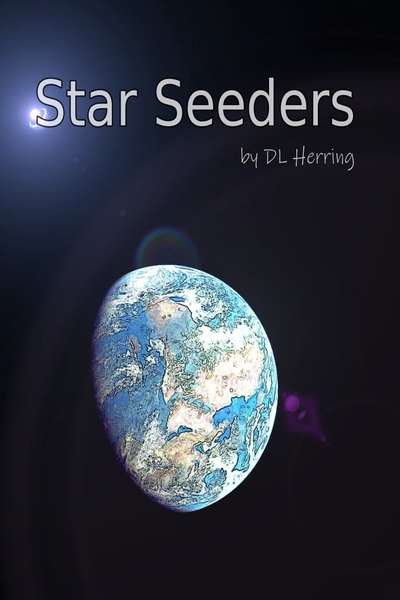We arose and walked to the encampment. The housing was random, including tents and shanties, but for the most part, wooden housing was the rule. I was glad to see the improvements. In the center of the smaller houses stood a larger house. Compared to the others, it was both higher and longer. The Kee were everywhere. The older ones sat on makeshift seats along the walls of their homes; the younger generation lined the paths between houses, straining to see me. I felt somewhat uncomfortable being the focus of all. It was as if some hero in a story had returned from war.
Odum and I walked into the outer quarters of the encampment, and I began to recognize some of the older Kee. They reached out their hands in warm greeting; I took their hands and called their names as I came to them. Dawee was there with his crooked smile, Lamet leaned forward with cane in hand, even old Samsa was still alive. I took all of their hands. The recognition in their eyes meant more to me than I could have expressed. I was on the verge of joyful tears.
With Odum at my side, I made my way through the broadening dirt paths of the central encampment. The longhouse loomed over us. Chickens scampered out from underfoot with frantic clucking. Small dogs came timorously to sniff my feet. Sheep and pigs wrangled in ill-fitting pens at the sides of houses. Pigeons sat on rooftops while large well-fed flies buzzed all around. A stir in the crowded path erupted; Jisse ran to me and threw her arms around my waist. She had put on weight in her extreme age. I wrapped my arms behind her and squeezed her close. Then I cried.
Young ones came to her side as I turned her loose. They held her arms and placed a seat beneath her. I wiped away tears with my hands and tried to gain some composure. Jisse had been a midwife and nanny to many. Hundreds loved and respected Jisse, I no less. It had been said that the Kee were kept in the arms of Jisse. She made a place there for me as well.
I knelt before her and took her hands in mine. “Dear, dear Jisse,” I said. “I am so happy to see you.”
With big tears in her brown eyes, she held my hands tightly and sighed my name with trembling breath, “Sais. Sais. Miss you. Hard wait.”
I said, “I go to the elder. I will want you by my side.”
Jisse wiped her face and smiled. She answered, “Jisse run slow. You go. Thusa wait.”
Thusa sat against the longhouse on a planed log. Our eyes locked. The elder Kee was gaunt and hoary. His round eyes were teary at my arrival and I fear mine were as well. He smiled up at me with yellow teeth as I fell to my knees before him. I took the elder in my arms and hugged him to me with such gladness one is at a loss to put in words. I buried my face in his frost-colored hair and reveled in the musty aroma of my dearest old friend.
As we sat together into the artificial night, Thusa spoke comfortably in a higher level of our language. I was impressed with his fluency. The effort must have taken immense dedication. The fires roared and crackled; the savory meats were accompanied by a seemingly endless stream of fruits, bread, sweets, and ale. The excitement was contagious. Children scampered in and out of the press as Thusa, Jisse, and I sat close on the planed bench. We sat long into the night, long past the children being ushered off to bed, long past the gradual fading of laughter and flame. We sat until the embers no longer popped. Jisse finally excused herself, and Thusa turned our quiet conversation to whispered urgencies.
“You must speak with your father,” said Thusa, catching me somewhat off guard.
I was shocked to hear my old friend list so many abuses against the well-being of the Kee. I had long campaigned for their rights and dignity, knowing their disadvantages among the Atomics. I had pleaded with Father on many occasions, only to hear his stock response, “They must come up through the ranks like all others.” Yet, until I heard Thusa say it, I had no idea of the depth of animosity the Atomics felt toward my gentle people. I was sickened and I realized that this matter now must be taken to our court of inquiry. Yet, without evidence, I could not make an initial complaint. The joy I had longed for in my reunion with Thusa had become such deep sorrow that I cannot find words.
I fled back to my living compartment and accessed the great mind of the armada. A few keystrokes at the access node informed me that Rigil was at ease in his living compartment. I sought his permission to visit him there and took the lift up to the central tree main floor. In the opening opposite the font was our transport tree. I stepped in and immediately found myself in the general area of the Axerri ship, Raxon. I hurried through the crowded tiers to his quarters and placed my hand on his door.
“Come,” he called from within.
I had no friend among the Atomics dearer than Rigil and, just then, I needed his comforts desperately. We embraced at the door and he led me within. As we sat among the brightly colored pillows on his couch, I spilled my soul to him. I told him of the dire news and of my unwavering sorrow. My dear dear friend! He listened patiently to all my woes with his arm across my slumped shoulders. Then, he spoke to me in a voice that was at once both easy and conspiratorial.
“My friend,” he said, “it is well for you that I have so many contacts throughout the fleet. If it is evidence that you need, a great many of my friends owe me favors.”
I returned to my Seed Ship with great peace in my heart. I took the lift up to the dome observatory and sat there for a great while. All the words that Thusa had spoken to me turned into vivid imagery in my mind's eye. My imagination paraded my abused Kee before me in a horrid spectacle. It threatened the peace I had achieved in the arms of my closest ally. I shook my head and blinked my eyes. I turned my attention out through the portals. Our fleet was a string of pearls laid out on black velvet. My home was beautiful and deeply flawed.











Comments (0)
See all